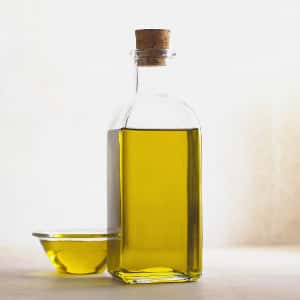
Independent research has shown that both olive oil and wine appear to protect people from cardiovascular disease. For example, a recent review pointed out that red wine, in particular, contains polyphenols that protect the heart (Liberale et al, Current Medicinal Chemistry, online May 17, 2017). (Of course, excessive wine does more harm than good.) A recent study on olive oil found that its polyphenols can protect tissues from oxidation (Fernandez-Castillejo et al, Molecular Nutrition & Food Research, online May 25, 2017).
What Is It About Olive Oil and Wine?
A new study published in the American Journal of Clinical Nutrition indicates a reason for similar benefits from olive oil and wine. Both virgin olive oil and wine contain the polyphenol hydroxytyrosol. This compound is metabolized to homovanillyl alcohol or HVAL for short.
How Does HVAL Affect Cardiovascular Health?
The researchers tested urine samples of 1,851 older men and women. These were people who participated in a five-year Mediterranean diet study in Spain known as PREDIMED. The investigators were specifically looking for HVAL levels.
The results of their study? The higher the HVAL concentrations in urine, the less likely people were to develop cardiovascular disease or die prematurely. The authors predicted that older people with the highest levels of HVAL gained nearly a decade compared to people with low levels of this compound.
De la Torre et al, American Journal of Clinical Nutrition, June, 2017
What Is a Mediterranean Diet?
To get the benefits from a Mediterranean diet, it takes a bit more than olive oil and wine. For one thing, the olive oil should be extra virgin olive oil, rich in polyphenols, which gives it a peppery flavor. For another, the wine is best in moderate quantities, consumed at meals with friends.
A Mediterranean-style diet is also rich in fish, fruits and vegetables, with very little meat, milk or sugar. You can find guidance on eating a Mediterranean diet in our book, The People’s Pharmacy Quick & Handy Home Remedies.

